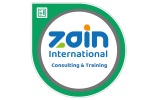Monitoring Evaluation, Accountability and Learning (MEAL DPro)
About The Course
The MEAL training programme is targeted at practitioners at all levels that wish to demonstrate an understanding of the fundamental aspects of MEAL systems and activities adapted by actors in the humanitarian and development contexts. The Core MEAL Certification is designed for program and project management staff with MEAL-related responsibilities, as well as a first step for specialized MEAL staff pursuing the Advanced MEAL Certification.
Course Objective
- Participants will develop advanced understanding on the components, concepts, and principles of MEAL; Planning, designing, and implementing MEAL activities; Data management and quality; and. Analysis, interpretation, and communication..
- To provide participants with best practices and tools to design and implement MEAL systems at the project, programme and organization level.
- Design logic models that later become the foundations of MEAL in projects. These tools include the Theory of Change, results frameworks, and logical frameworks (logframes).
- Collect MEAL data by using well-designed qualitative and quantitative data collection tools, appropriate sampling methods, and recommended data management practices.
After completing the MEAL module certification, Participants will develop advanced understanding on the components, concepts, and principles of MEAL; Planning, designing, and implementing MEAL activities; Data management and quality; and. Analysis, interpretation, and communication.
- Introduction: Define the components, structure and purpose of MEAL, The MEAL Phase Model, Ethical Standards and Cross-Cutting Themes, Describe the relationship between MEAL and project management 4 Hours
- Logic Models: Design logic models that later become the foundations of meal in projects. These tools include the Theory of Change, results frameworks, and logical frameworks (logframes).4 Hours
- Planning MEAL Activities: MEAL planning including feedback mechanisms, Data Flow Map, Indicator performance Tracking Table, Summary evaluation table, Evaluation terms of reference, and various types of evaluations.4 Hours
- Collecting MEAL Data: developing and implementing tools for quantitative and qualitative data collection, basic concepts of sampling, data collection implementation strategies, protocols and standards for responsible data management.4 Hours
- Analysing MEAL Data: Quantitative Data Analysis, Qualitative Data Analysis, Data Visualization, and Data Interpretation.4 Hours
- Using MEAL Data: Adaptive Management and Progress Reporting to inform project decisions, communicate with stakeholders and practice adaptive management.4 Hours
-

-
Head Office
King Noor St. , Amman, Jordn
-
+962789140000 +962798556160





